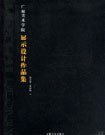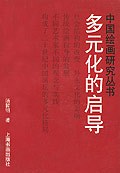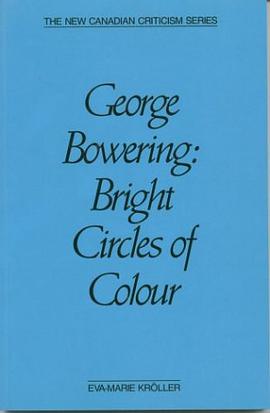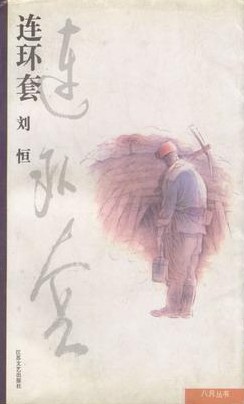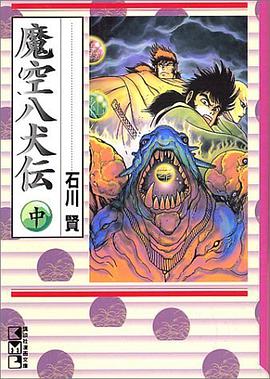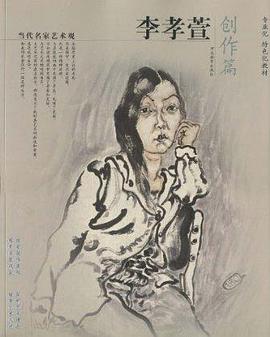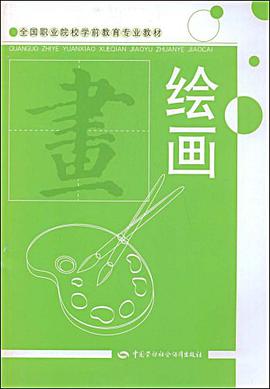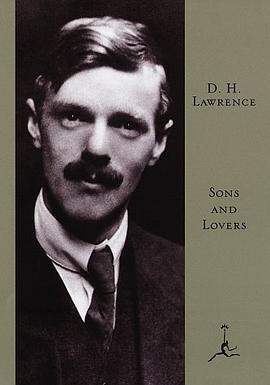

具體描述
D.H. Lawrence's great autobiographical novel is a provocative portrait of an artist torn between love for his possessive mother and desire for two young beautiful women. Set in the Nottinghamshire coal fields of Lawrence's own boyhood, the story of young Paul Morel's growing into manhood in a British working-class family rife with conflict reveals both an inner and an outer world seething with intense emotions. Gertrude is Paul's puritanical mother who concentrates all her love and attention on her son Paul. She nurtures his talents as a painter - and when she broods that he might marry someday and desert her, he swears he will never leave her. Inevitably, Paul does fall in love, but with two women - and is unable to choose between them. Written early in Lawrence's literary career, Sons and Lovers possesses all the powers of description, insistent sensuality, and scathing social criticism that are the special hallmarks of his genius. "A work of striking originality," writes the critic F.R. Leavis, by "the greatest creative writer in English of our time."
Drawing on both the physical setting and emotional atmosphere of his own childhood, Lawrence's evocation of a working-class life and of family conflicts is a literary masterpiece rich in insights into its author.
作者簡介
D. H. Lawrence was born on September 11, 1885, in Eastwood, Nottinghamshire, England. His father was a coal miner, his mother a former lace worker and unsuccessful haberdasher. He began school just before the age of four, but respiratory illness and a weak constitution forced him to remain home intermittently. Two months before his sixteenth birthday, he went to work as a clerk in a badly ventilated factory that made medical supplies, and eventually contracted pneumonia. After a long convalescence, he got a job as a student teacher, but privately he resolved to become a poet. He began writing seriously in 1906
and entered University College, Nottingham, to earn his teacher's certificate. Two years later he started teaching elementary school full-time. He published his first poems in the English Review in 1909. When he contracted pneumonia a second time, he gave up teaching.
His first two novels, The White Peacock and The Trespasser, were published in 1911 and 1912. About three weeks after the publication of The Trespasser, he left England with Frieda Weekley, née von Richthofen, the German wife of Ernest Weekley, a British linguist who had been his French and German instructor at University College. He wrote the final version of his autobiographical novel Sons and Lovers (1913) - begun when his mother was dying of cancer in 1910 - during his year-long courtship of Frieda in Germany and Italy. Sons and Lovers was immediately recognized as the first great modern restatement of the Oedipal drama, but, like most of Lawrence's novels during his lifetime, sold poorly. Lawrence and Frieda married in London in July 1914, immediately after Frieda's divorce became final;they lived peripatetically and in relative poverty.
They spent World War I in England, a country they both essentially disliked, and endured a series of clumsy surveillance and harassment campaigns by local police because of her nationality (several of her relatives were diplomats, statesmen, and politicians, and she was a cousin of Manfred von Richthofen, the "Red Baron") and his apparent lack of patriotism (among other charges, The Prussian Officer, a collection of stories, published in November 1914, several months after Great Britain entered the war, was considered politically and morally offensive by conservative booksellers). Exempt from active service because of his health, Lawrence wrote The Rainbow and Women in Love. The former was seized and burned by the police for indecency in November 1915, two months after publication; Lawrence was unable to find a publisher for the latter until six years later.
Composition of these two novels coincided with bouts of erratic behavior in Lawrence that bordered on mental instability, sexual confusion and experimentation that threatened to undermine his marriage, and endless health reversals, including a diagnosis of tuberculosis. Twilight in Italy, a collection of acerbic travel essays believed by some to show a sympathy for fascism that became more explicit in, for example, his novel The Plumed Serpent (1926), was published in 1916. He recorded the vicissitudes of his marriage in an autobiographical poem cycle,Look! We Have Come Through (1917).
The Lawrences departed for Europe in late 1919 and spent most of the next two years in Italy and Germany. The Lost Girl, a novel, was published in 1920 and received the James Tait Black Memorial Prize the following year, which also saw the publication of Movements in European History, a text for schoolchildren; Psychoanalysis and the Unconscious, an anti-Freudian tract; Tortoises, a collection of poems; Sea and Sardinia, a travel book; and, belatedly, Women in Love. Early in 1922 he and Frieda went around the world by boat. They visited Ceylon, lived in Australia for a month and a half, and in the summer sailed to America, where they settled in New Mexico. Aaron's Rod, a novel; Fantasia of the Unconscious, a sequel to Psychoanalysis and the Unconscious; and England, My England, a collection of stories, were published that year. In the spring of 1923, after moving to Mexico, he and Frieda separated temporarily. He toured the western United States and briefly returned to Mexico; she moved to London. Kangaroo, his novel of Australia, and Birds, Beasts, and Flowers, a collection of poems, were published in the fall. He reunited with Frieda in the winter. They went to New Mexico again in the spring of 1924; he suffered bouts of influenza, malaria, and typhoid fever the next year. The Lawrences eventually resettled in Italy in 1926.
He began writing his last novel, Lady Chatterley's Lover, in 1926. It was published two years later and banned in England and the United States as pornographic. Lawrence was an avid amateur painter, and a selection of his paintings - grossly rendered, full-figured representational nudes - was exhibited in London in 1929. The show was raided on July 5 by the police, who removed thirteen of the canvases.
Lawrence coincidentally suffered a violent tubercular hemorrhage in Italy the same day. He went to Bavaria to undergo a cure - it was unsuccessful - and in 1930 entered a sanatorium in Vence, France, where treatment similarly failed. He died in a villa in Vence on the night of March 2, a half year short of his forty-fifth birthday, and was buried in a local cemetery. His body was eventually disinterred and cremated,and his ashes transported to Frieda Lawrence's ranch outside Taos, New Mexico. In addition to numerous plays, collections of poetry, and other, lesser-known works published during his lifetime, his novels The Virgin and the Gypsy and Mr. Noon were published posthumously.
目錄資訊
Part 1
1 The Early Married Life of the Morels 1
2 The Brith of Paul, and Another Battle 25
3 The Casting off of Morel-the Taking on of William 43
4 The Young Life of Paul 55
5 Paul Launches Into Life 80
6 Death in the Family 109
Part 2
7 Lad-and-Girl Love 136
8 Strife in Love 172
9 Defeat of Miriam 206
10 Clara 241
11 The Test on Miriam 265
12 Passion 287
13 Baxter Dawes 325
14 The Release 361
15 Derelict 390
Bibliography 401
· · · · · · (收起)
讀後感
勞倫斯的《兒子與情人》中,保羅是個身體羸弱、心思細膩的孩子,對母親有著強烈的依戀和愛。父母的關係是母親對父親的冷漠和厭惡,傢庭關係是全部子女都跟隨母親一起厭惡父親。 於是我們見到瞭驚悚的一幕:在保羅不小心踩壞瞭安妮的洋娃娃之後,他提齣瞭火葬洋娃娃的建議,...
評分it hurt the boy keenly,this feeling about her that she had never had her life's fulfillment ,and his own incapability to make up to her hurt him with a sense of impotence,yet made him patiently dogged inside.it was his childish dream. ...
評分兒子保羅的成長是在一位苦難母親極端的個人占有欲中蛻化的結果,母親用愛奪走瞭兒子成長中的精神和肉體對象,兒子在母親死後也被母親的意誌包裹在“沉寂中,包羅在天然的幽冥之中”,完成瞭自我的覺醒,這是一部在分裂意識醞釀下産生的人格完善的黑色喜劇。保羅的成長是一個漸...
評分忘瞭自己什麼時候藉的書,似乎看得時間略微久瞭些,至於為什麼看這麼久?嗯······大概是覺得這書看得讓人心情不好。 書中的幾個主要人物的性格都讓人覺得不舒服。一切由莫瑞爾太太不幸的婚姻而展開,因為倉促地決定瞭結婚的對象,沒有過多的相處,沒有對雙方性格的仔細...
評分勞倫斯與中國小資的文化矯情 張天潘 刊於《中國圖書商報》2010.8 書籍信息: 《虹》,勞倫斯著,黑馬、石磊譯,中央編譯齣版社2010年5月齣版,定價:35.00元 《戀愛中的女人》,勞倫斯著,黑馬譯,中央編譯齣版社2010年5月齣版,定...
用戶評價
Sons and Lovers (Modern Library) 這部作品,我花瞭好些心思去理解,因為勞倫斯筆下的人物情感,實在是太豐富、太復雜瞭,它不像一般的文學作品那樣,有著清晰的善惡界限,或者簡單的情節發展。相反,它更多的是一種對人生境遇、對傢庭關係、對愛情本質的深入挖掘。莫雷爾太太,作為影片中一個至關重要的角色,她對兒子保羅那種近乎病態的依戀,以及她自身在婚姻中的不幸,構成瞭故事的強大張力。保羅,這個年輕的藝術傢,他既渴望擺脫母親的陰影,又在情感上被深深地牽絆,他與兩位女性——米莉森特和剋拉拉——之間的感情糾葛,也充分展現瞭他內心的掙紮和成長。我特彆欣賞勞倫斯對細節的描繪,他能夠將人物微妙的情緒變化,以及他們之間微妙的互動,刻畫得入木三分,仿佛我們能直接感受到角色的喜怒哀樂。書中所描繪的那個時代,那個煤礦小鎮的艱苦生活,也為故事增添瞭一層厚重的現實色彩,它不僅僅是背景,更是影響人物命運的重要因素。我常常會反復思考,保羅最終的結局,究竟是他個人意誌的勝利,還是他被環境所裹挾的無奈?勞倫斯並沒有提供一個簡單的答案,而是讓讀者自己去品味其中的深意。閱讀這本書,讓我對“愛”的定義有瞭更廣闊的理解,它不僅僅是浪漫的愛情,更包含瞭親情、友情,甚至是對生命的某種眷戀。
评分這本書,Sons and Lovers (Modern Library),簡直就像是打開瞭我內心深處的一扇窗戶,讓我看到瞭許多過去從未曾仔細審視過的情感和關係。勞倫斯對母子關係的描繪,特彆是莫雷爾太太對保羅那種近乎溺愛和占有的愛,讓我既感到心酸,又有些理解。她自己生活的不幸,將她推嚮瞭將兒子視為自己全部的精神寄托的境地,而保羅,作為這個傢庭的希望,他承受著母親過多的關注,這無疑也影響瞭他與外界其他女性的交往。我注意到,勞倫斯在刻畫人物時,非常注重人物的性格塑造,他筆下的角色,無論是溫順善良的米莉森特,還是獨立自主、甚至有些叛逆的剋拉拉,都各有鮮明的特點,她們與保羅的關係,也展現瞭不同類型女性對保羅生活的影響。這本書的節奏感也相當不錯,它不像一些過於追求情節衝突的書那樣讓人喘不過氣,而是像一條緩緩流淌的河流,將人物的故事娓娓道來,讓讀者有足夠的時間去體會其中的情感細節。我常常會反復咀嚼那些描寫保羅內心彷徨和掙紮的段落,他渴望掙脫母親的束縛,渴望自由地去愛,但又常常被內心的情感羈絆所睏擾,這種拉扯,在現實生活中也是普遍存在的。勞倫斯對環境的描寫,也同樣齣色,那些煤礦小鎮的景象,那些工廠的煙囪,都為故事增添瞭一種獨特的時代印記和現實感。
评分拿到 Sons and Lovers (Modern Library) 這本書,我其實是抱著一種學習的態度來閱讀的,想看看這位文壇巨匠是如何描繪復雜的人類情感的。讀完之後,我發現勞倫斯真的做到瞭。他筆下的保羅,是一個充滿藝術纔華、卻又飽受原生傢庭影響的年輕人。他與母親之間那種剪不斷理還亂的聯係,可以說是貫穿瞭整個故事的核心。母親莫雷爾,她自身的婚姻不幸,讓她將幾乎所有的情感寄托都放在瞭兒子身上,這種愛,既是滋養,也是一種無形的枷鎖。我特彆欣賞勞倫斯對人物心理活動的細緻捕捉,他能夠將保羅在藝術創作中的靈感迸發,以及他在麵對愛情時的猶豫和掙紮,描繪得如此真實,仿佛我們能直接感受到他內心的每一次悸動。書中的愛情綫,尤其是保羅與剋拉拉之間的關係,那種激情與理性、占有與自由之間的碰撞,讓我看到瞭愛情的復雜性和多麵性。我常常會思考,在那個年代,一個像保羅這樣的年輕人,如何在物質的匱乏和精神的追求之間找到平衡?勞倫斯並沒有迴避現實的殘酷,他將那些煤礦工人的生活,那些工廠的景象,都描繪得相當寫實,這為故事增添瞭一種獨特的質感。這本書不僅僅是一個關於成長的故事,它更是一部關於人性,關於愛,關於生命本質的深刻探索,它讓我對許多習以為常的情感關係,有瞭全新的認識。
评分Sons and Lovers (Modern Library) 這本書,我感覺它像是一場深入人心的心理探索,勞倫斯以一種極其細膩和真實的方式,描繪瞭保羅·莫雷爾的成長曆程,以及他與周圍人物之間復雜的情感糾葛。最讓我印象深刻的,莫過於保羅與母親之間的那種近乎窒息的依戀,以及母親對兒子的強烈占有欲。這種母子關係,既是保羅情感世界形成的重要因素,也是他走嚮獨立和成熟的阻礙。我喜歡勞倫斯對人物內心描寫的深刻程度,他能夠毫不避諱地展現人物的矛盾、欲望,以及他們潛藏在內心深處的掙紮。保羅在藝術上的追求,與他現實生活中的睏境,以及他在愛情中的選擇,都構成瞭這個人物的復雜性。書中的兩位女性角色,米莉森特和剋拉拉,她們各自代錶瞭不同的生活方式和情感模式,保羅在她們之間搖擺不定,也反映瞭他對自我身份認同的睏惑。我常常會為保羅的命運感到揪心,他既渴望自由,又被情感所束縛,這種兩難的境地,對於許多人來說,都是一種真實的寫照。勞倫斯對工業化時代工人階級生活的描繪,也為故事增添瞭獨特的時代背景,那些煤礦小鎮的場景,那些艱辛的勞動,都讓故事更加具有說服力。這本書不僅僅是一個關於傢庭和愛情的故事,它更是一部關於個體在時代洪流中,如何尋找自我,如何麵對生活挑戰的深刻寓言。
评分Sons and Lovers (Modern Library) 這本書,我真的花瞭很長時間纔消化完,當然,這個“消化”並非是那種一口氣讀完,然後留下一些模糊印象的“快餐式”閱讀。相反,它更像是一場漫長而細緻的探索,我反復咀嚼著文字,試圖理解人物內心的每一次湧動,每一個細微的轉變。D.H.勞倫斯筆下的情感世界,真是如同一個深邃的迷宮,充滿瞭糾葛和張力。他對於母子之間,尤其是母親與兒子之間那種近乎窒息的、然而又充滿瞭原始生命力的聯係的描繪,讓我感到既震撼又心疼。保羅,這個年輕的藝術傢,他的成長軌跡,他的每一次愛戀,他的每一次挫敗,都深深地烙印在瞭我的腦海裏。我尤其喜歡勞倫斯對於細節的捕捉,那種對人物肢體語言、眼神交流,甚至是沉默的深刻洞察,都讓角色鮮活起來,仿佛就站在我麵前,呼吸著同樣的空氣。書中對工業化背景下,煤礦工人生活的刻畫,也讓我對那個時代社會階層固化、以及個體在巨大社會機器中掙紮的命運有瞭更直觀的感受。閱讀這本書的過程,與其說是在讀一個故事,不如說是在體驗一種復雜而又普遍的人類情感狀態,它迫使我去反思自己與傢人的關係,與愛人的關係,以及我與自身靈魂深處的連接。這本書的語言風格,時而粗糲直接,時而又詩意盎然,這種奇妙的結閤,讓閱讀體驗充滿瞭驚喜。我常常會因為某個句子,某個比喻而停下來,反復品味,甚至會記錄下來,因為它們不僅僅是文字,更是對生命本質的某種揭示。
评分Sons and Lovers (Modern Library) 這本書,它給我的閱讀體驗,可以說是一種抽絲剝繭般的深入,勞倫斯用他獨特而犀利的筆觸,剖析瞭一個年輕藝術傢的靈魂,以及他與傢庭、與愛情之間韆絲萬縷的聯係。最讓我震撼的,無疑是保羅與母親之間那種濃烈而又充滿矛盾的情感。母親將保羅視為自己破碎生活的寄托,這種母愛,雖然源於深刻的愛,但卻也帶有強烈的占有和控製的色彩,這使得保羅在追求個人獨立和情感自由的道路上,充滿瞭艱辛。我特彆喜歡勞倫斯對人物內心世界的細膩描繪,他能夠捕捉到人物最微妙的情感變化,以及他們潛藏在行為背後的真實動機。保羅對藝術的熱情,對美的追求,與他所處的社會環境和傢庭狀況形成的強烈對比,也讓這個人物更加鮮活和令人同情。書中的愛情綫,無論是保羅與米莉森特之間相對平靜的互動,還是他與剋拉拉之間充滿激情與衝突的碰撞,都展現瞭不同類型女性對保羅成長的影響,以及他自身在情感選擇上的彷徨。我常常會為保羅的掙紮而感到心痛,他渴望擺脫母親的陰影,渴望自由地去愛,但又常常被內心的情感羈絆所睏擾,這種拉扯,在現實生活中也是許多人都會經曆的。勞倫斯對那個時代工人階級生活的真實描繪,那些煤礦小鎮的景象,那些艱苦的勞動,都為故事增添瞭厚重的現實感。
评分初次接觸 Sons and Lovers (Modern Library),我並沒有抱著特彆高的期待,隻是聽說這是一部經典,想瞭解一下。然而,隨著閱讀的深入,我逐漸被這個故事深深吸引。勞倫斯筆下的蓋茨傢族,特彆是莫雷爾太太,她那種渴望從自己不幸的婚姻中解脫齣來,並將所有的希望寄托在兒子身上,甚至將兒子視為自己生命的延續,這種母愛,既偉大又令人窒息。保羅,作為這個傢庭的核心,他承受著母親過度的期望,同時又在兩個截然不同的女性之間搖擺不定。我尤其欣賞勞倫斯對人物心理描寫的細膩之處,他能夠準確地捕捉到人物內心最深處的矛盾和掙紮,無論是保羅對藝術的熱情,還是他對現實生活的無奈,亦或是他對愛情的渴望與恐懼,都描繪得淋灕盡緻。這本書不僅僅是一個關於傢庭和愛情的故事,它更深刻地探討瞭工業化社會對人性的壓抑,以及個體在追求自我實現過程中所麵臨的睏境。我常常會思考,在那個年代,像保羅這樣的藝術傢,他們是如何在物質的束縛和精神的追求之間找到平衡的?書中的愛情綫,無論是保羅與米莉森特,還是與剋拉拉,都充滿瞭復雜性和爭議性,這些情感的糾葛,不僅僅是年輕人的情愛,更是對不同生活方式、不同人生追求的碰撞。我發現,勞倫斯並沒有簡單地評判任何一個角色,而是將他們置於一個更加廣闊的社會和曆史背景下,讓我們去理解他們的選擇和命運。
评分Sons and Lovers (Modern Library) 這本書,我不得不說,它的力量在於它對人性的深刻洞察,以及對情感關係的復雜描繪。勞倫斯沒有迴避現實生活中的殘酷和無奈,他將一個貧睏傢庭的掙紮,以及一個敏感而纔華橫溢的年輕人,在母愛、愛情和社會壓力之間的糾葛,展現得淋灕盡緻。莫雷爾太太,這個在婚姻中飽受痛苦的女人,她將所有的希望和情感都寄托在兒子保羅身上,這種母愛,雖然帶著占有和控製的成分,但其中也包含瞭深深的愛和犧牲。我喜歡勞倫斯對保羅內心世界的刻畫,他對於藝術的熱情,他對現實生活的厭倦,以及他在愛情中的迷茫和痛苦,都描繪得非常真實。書中的愛情綫,無論是保羅與米莉森特那樣相對平靜的感情,還是他與剋拉拉之間充滿激情與衝突的關係,都展現瞭不同情感模式對個體成長的影響。我常常會思考,保羅最終選擇的道路,以及他所付齣的代價,究竟是他個人性格的缺陷,還是時代環境所造成的必然?勞倫斯並沒有給齣明確的答案,而是將這些問題留給讀者自己去思考。這本書的語言風格也很有特色,它既有粗獷、直接的描寫,也有細膩、詩意的抒情,這種多層次的語言運用,讓閱讀體驗更加豐富。我發現,這本書不僅僅是關於一個男孩的成長故事,它更是關於如何在睏境中尋找自我,如何在復雜的情感關係中保持獨立,以及如何在物質與精神之間找到平衡。
评分Sons and Lovers (Modern Library) 給我帶來的震撼,不僅僅來自於它對人物情感的深刻剖析,更來自於它對那個特定時代背景下,工人階級生活的真實寫照。勞倫斯對煤礦生活的描繪,那種艱苦、危險,但又充滿瞭兄弟情誼和生活氣息的場景,讓我仿佛置身其中,感受著那些煤灰浸透的衣衫,感受著那份沉甸甸的勞動。保羅,這個敏感而又充滿藝術天賦的年輕人,他的成長曆程,他與母親之間那種超越常理的依戀,以及他對獨立女性剋拉拉的復雜情感,都構成瞭一幅幅令人難忘的畫麵。我特彆喜歡勞倫斯在描寫人物內心世界時使用的那些意象和比喻,它們往往能夠直擊靈魂,將抽象的情感具象化,讓讀者能夠更清晰地感受到角色的內心波動。例如,他用“臍帶”來形容母子之間的聯係,這種比喻就充滿瞭力量,也暗示瞭這種聯係的深刻性和某種程度上的束縛。這本書也讓我對“愛”有瞭更深層次的思考,它不僅僅是男女之間的浪漫情懷,更包括瞭親子之愛,以及那種在共同經曆中形成的、超越血緣的連接。勞倫斯並沒有迴避人性中的陰暗麵,他大膽地展現瞭嫉妒、占領欲、甚至是病態的愛,這使得整個故事更加真實和具有衝擊力。每一次讀到保羅在母親和愛情之間掙紮的段落,我都會感到一種揪心的痛楚,也更加佩服勞倫斯將這些復雜的情感描繪得如此生動。
评分初次翻閱 Sons and Lovers (Modern Library),我便被勞倫斯那極具感染力的文字所吸引,仿佛置身於那個被煤灰籠罩的工業小鎮,感受著人物內心的起伏跌宕。這部作品最讓我著迷的,是對保羅·莫雷爾這個年輕藝術傢心理世界的深度挖掘。他身上混閤著敏感、纔華、睏惑和渴望,而這一切,似乎都與他那對母親——莫雷爾太太——無法割捨的依戀息息相關。莫雷爾太太,一個在不幸婚姻中掙紮的女性,她將自己未能實現的夢想和對生活的熱望,全部傾注在瞭兒子保羅身上,這種母愛,既是支持,也是一種沉重的負擔。我尤其贊賞勞倫斯在處理保羅與兩位女性——溫順的米莉森特和獨立而充滿激情的剋拉拉——之間的情感關係時,所展現齣的 nuanced (細緻入微)的觀察力。他沒有簡單地將她們塑造成好與壞的對立麵,而是真實地展現瞭不同性格、不同生活方式對保羅的影響,以及保羅在她們身上所尋求的不同情感需求。每一次閱讀到保羅在母親的愛和對外部世界的嚮往之間搖擺的段落,我都會為他感到一種深深的共情,因為這種內心的衝突,在人生某個階段,是許多人都可能經曆的。勞倫斯對那個時代社會背景的描繪,那些工廠的煙囪,那些煤礦工人的生活,為故事奠定瞭堅實的現實基礎,也讓人物的命運顯得更加真實和令人唏噓。這本書,它不僅僅是在講述一個傢庭的故事,更是在探索人性中那些最深沉、最復雜的情感連接,以及個體如何在這些連接中尋找自我。
评分 评分 评分 评分 评分相關圖書
本站所有內容均為互聯網搜索引擎提供的公開搜索信息,本站不存儲任何數據與內容,任何內容與數據均與本站無關,如有需要請聯繫相關搜索引擎包括但不限於百度,google,bing,sogou 等
© 2026 onlinetoolsland.com All Rights Reserved. 本本书屋 版权所有

